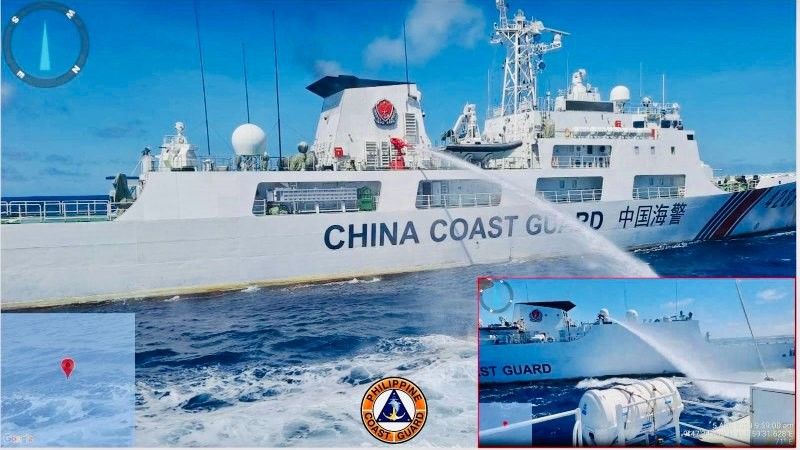Crisis communication is crucial to de-escalate geopolitical tensions

During the August 5 crisis at Second Thomas Shoal, the Philippines Department of Foreign Affairs tried to contact its Chinese counterparts through a bilateral hotline. Manila’s effort to de-escalate the standoff despite being the victim of Chinese aggression was laudable. Unfortunately, the calls went unanswered. Officials in Washington have shared the same experience on many occasions – when communication is needed most, Beijing can’t be reached.
Only days after the incident, the United States Institute of Peace and the Stratbase ADR Institute convened international experts to discuss ways Washington and Manila can coordinate as alliance partners during future crises to prevent escalation into unwanted conflict.
Participants were quick to point out the effective steps already taken by the United States and the Philippines to de-escalate tensions. For example, the video footage released by the Philippine Coast Guard provided valuable transparency to the crisis, allowing observers around the world to witness Beijing’s aggressive actions. This type of bold transparency will be increasingly important as disinformation invades the information environment.
Meanwhile, in a press statement, the United States called out China for its dangerous actions and reaffirmed its treaty commitment to the Philippines. The current strength of the U.S.-Philippine alliance, with deep buy-in from both presidents, gives these statements extra teeth.
Still, the China Coast Guard’s use of water cannons against an unarmed Philippine Navy resupply vessel is just the latest episode in Beijing’s incessant campaign of intimidation and coercion in the South China Sea. These “gray zone” activities are certain to continue, including in the West Philippine Sea.
Now, more than ever, the United States and the Philippines will need to work together as allies to deter Chinese aggression and mitigate the risk of dangerous incidents spiraling out of control. Accordingly, there are several next steps which leaders in Washington and Manila should consider.
First, despite recent frustrations, officials in Washington and Manila must patiently and persistently build communications channels with counterparts in Beijing. Even modest communication will go a long way towards clarifying intentions and lowering the risk of conflict. The U.S.-Philippines alliance is stronger now than ever, putting both partners in a newly advantageous position to pursue proactive and confident diplomacy. While China often rebuffs calls for dialogue specifically on improving crisis communications, Beijing has indicated there could be space to address this critical issue, or at least “crisis management,” under the umbrella of broader strategic engagements.
To this end, existing forums like the Bilateral Consultative Mechanism for the South China Sea are useful for communicating intentions and managing the disputes peacefully. Even hotlines, despite their seeming futility in recent years, can be reimagined as tools for clear, one-way communication. While these mechanisms may flounder at times, it is important to keep open as many channels of communication as possible. At the very least, Beijing’s refusal to use such established channels will lay bare its behavior to the international community.
Second, Washington and Manila should further coordinate their strategic messaging, which the two countries are now in a better place to do given the uptick in official dialogues and the sudden warmth in the relationship. This includes calling out China’s coercive actions together, as well as clearly communicating, in the same terms, the stipulations of the U.S.-Philippines Mutual Defense Treaty and the opportunities presented by closer military cooperation, particularly due to more regular and expanded U.S. military presence under the Enhanced Defense Cooperation Agreement. Such clear and coordinated messaging, backed by enhanced allied military capabilities, will be essential to deterring future acts of aggression from China.
Third, it’s not just about the United States and the Philippines alone. Increasingly institutionalized cooperation between the Philippines and the United States with Japan and Australia offers further opportunities to speak with a louder voice.
Finally, the United States should support Philippine efforts to delimit its claims in the West Philippine Sea. By clearly laying out its claims, Manila can confidently open bilateral delimitation talks with Beijing. The long-delayed agreement on a South China Sea Code of Conduct has led many claimants to kick difficult delimitation talks down the road. But this has only benefited China, giving it more time to modernize its military and take control of even more features.
As the United States and the Philippines continue to work through these challenging issues together, it is important that officials remain clear eyed and levelheaded. There are certain to be voices in both countries calling for irrational or inflammatory responses to China’s aggression, but these will only heighten the risk of conflict. While there is no easy solution to any of these issues, increasing dialogue between the United States and the Philippines at all levels – including with experts outside of government – will be important.
Brian Harding is a senior expert for Southeast Asia and Alex Stephenson is a program specialist-China of the United States of Peace (USIP), a partner organization of think tank Stratbase ADR Institute (ADRi).
- Latest


























